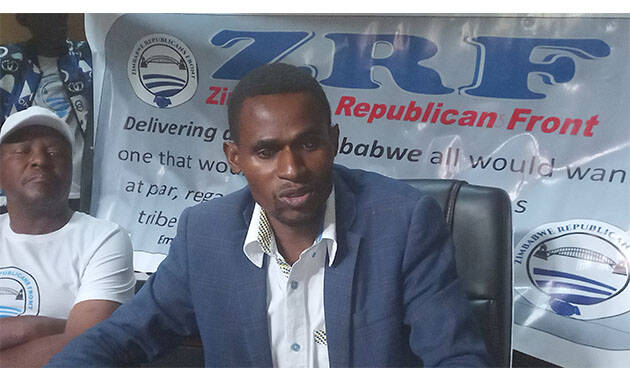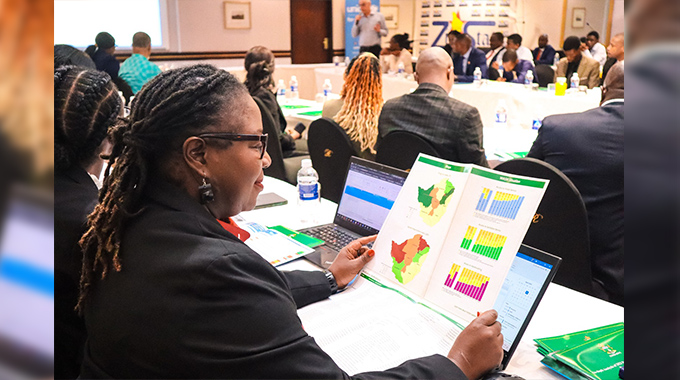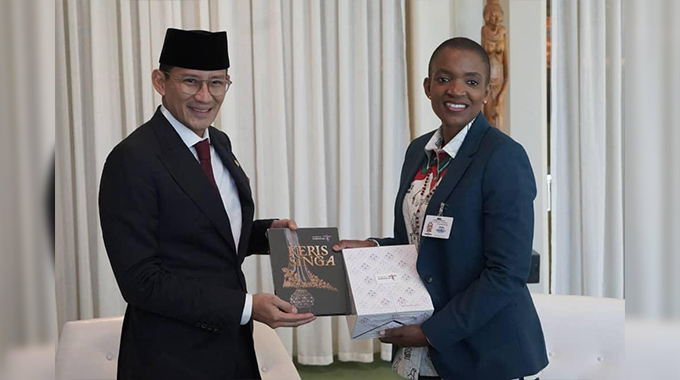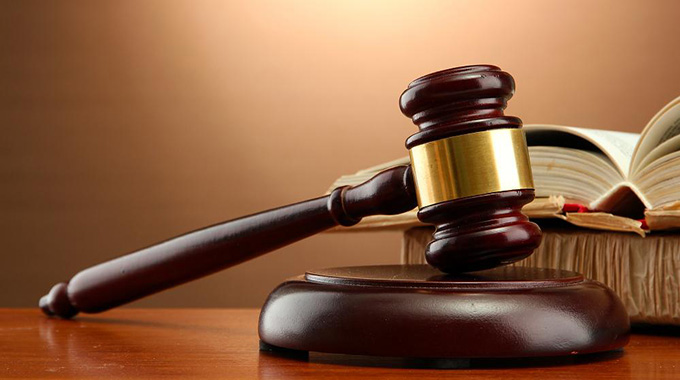ZRF party calls for lifting of sanctions

Bongani Ndlovu, Online Reporter
The Zimbabwe Republican Front (ZRF) has called for the removal of the illegal economic sanctions imposed on Zimbabwe by the West describing them as detrimental to the attainment of democracy in Zimbabwe and have caused untold suffering to citizens.
Presenting the ZRF party manifesto, its president, Mr Fanuel Lisenga in Bulawayo on Wednesday, said the economic sanctions have brought about untold suffering to Zimbabweans.
“In terms of the illegal economic sanctions, we the Republicans what we continue to see from the past is that we are appealing to the West that it will be very good for the people of Zimbabwe that they lift the economic sanctions.
“Because literally the economic sanctions they are the ones that are causing the mayhem in Zimbabwe and the political squabbles that we see. Let the sanctions be lifted not for the benefit of the ruling Government, but for the benefit of Zimbabweans as a whole. We all know the effects of the economic sanctions,” said Mr Lisenga.
“The West must lift the sanctions, even those that they call targeted sanctions must be lifted. This is because they affect the overall performance of Government and the overall electoral process.”
Mr Lisenga said the sanctions have made it difficult for opposition parties to look for funding outside.
“We as opposition parties feel that we are being punished because of these economic sanctions. In the past, there were parties that invited the issue of sanctions,” said Mr Lisenga.
He bemoaned what he called the exorbitant nomination fees which are pegged at US$20 000 for presidential candidates, US$1 000 for House of Assembly and US$100 for Senators
“Most of our parliamentarians are crying foul. Even myself as the presidential candidate the US$20 000 is too much and beyond the reach of many. We want all our candidates to contest, but the money is too much. As a potent party to bring a republic we feel that we have been left out with these nomination fees and it’s an injustice to us by a few elite,” said Mr Lisenga.
“The 2023 race, which we felt was going to be an interesting contest for all political players in Zimbabwe regardless of their economic status, is, unfortunately, going to be for just a few elites.”
The party was formed last year and the spokesperson Mr Sihlekiso Moyo will contest for the Cowdray Park House of Assembly seat against Professor Mthuli Ncube of Zanu-PF.
“He is the one who can win the Cowdray Park constituency more than anyone of these candidates that are there. He is disabled and because of these nomination fees that are exorbitant we feel that he is being left out,” said Mr Lisenga.
Asked if in the event his party fails to raise the nomination fees, Mr Lisenga said they would choose a candidate to support in the elections in the presidential elections, but will field some for the House of Assembly and local authority.
Spelling out ZRF’s manifesto, Mr Lisenga said the party stands for Accountability and frowns upon corruption.
“The ZRF is saying Accountability, Accountability in bringing development in a cohesive measures environment in the republic of Zimbabwe for the year 2023 and beyond. This is an environment that doesn’t have economic sanctions and we are saying the leaders must be accountable as far as their actions are concerned.
“If there is no accountability as leaders we shall have issues to do with looting and corruption. Sanctions aren’t good and we understand that but also corruption isn’t good and everyone in Government when we win the elections, we say no to corruption and leaders must be accountable,” said Mr Lisenga.
Last year, the United States government has today removed 17 Zimbabweans from the illegal sanctions list while adding four people and two companies, as the clarion call for total and unconditional removal of the illegitimate embargoes grows louder every day.
The sanctions are illegal and unjustified because they violate Article 41 of the United Nations Charter, which states that sanctions can only be decided on by the UN Security Council.
In other words, individual countries cannot unilaterally decide to impose them on other sovereign States.
In its resolution 39/210 of 18 December 1984, the UN General Assembly called on developed countries to “refrain from threatening or applying trade restrictions, blockades, embargoes and other economic sanctions, incompatible with the provisions of the Charter of the United Nations and in violation of undertakings contracted multilaterally or bilaterally, against developing countries as a form of political and economic coercion which affects their economic, political and social development.”
In response to the country’s successful Land Reform Programme that reversed unfair land distribution which favoured a handful of white settlers against millions of native Zimbabweans, the US imposed sanctions under the so-called Zimbabwe Democracy and Economic Recovery Act (ZIDERA) of 2001.
The European Union (EU) also introduced its own sanctions in February 2002.
According to a 2020 Sadc report, it is estimated that Zimbabwe has lost well over US$42 billion in revenue over 19 years because of the sanctions.
This includes lost bilateral donor support estimated at US$4.5 billion annually since 2001, US$12 billion in loans from the International Monetary Fund, the World Bank and African Development Bank, commercial loans of US$18 billion and a GDP reduction of US$21 billion.
This has severely impacted on economic and infrastructural growth in the country.
World leaders have of late used international forums to condemn the illegal restrictions that include the 77th Session of the United Nations General Assembly that was held in September 2022. African leaders spoke emphatically against the unjustified sanctions which they said were hurting the entire region.










Comments